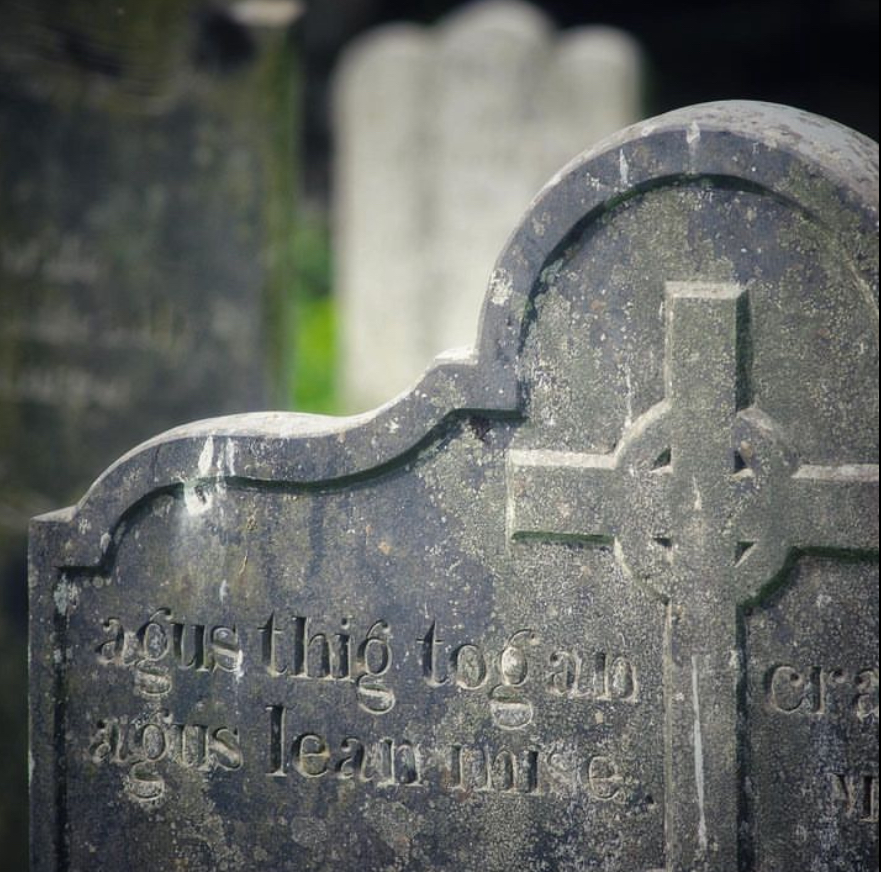The Equality of Death & The Power of Hope
by Donavon L Riley
Mortality’s grip is unbreakable. We don’t need books or blog posts to educate us about this, not when experience is our greatest teacher. But, in case we want to downplay the importance of this truth, the ninth chapter of the Book of Ecclesiastes stands as a sobering reminder about the inevitability of death. The preacher, “Qoheleth,”(pronounced, Kho-hehl-ehth) declares, “For the living know that they will die, and the dead know nothing.” This declaration cuts through delusions about our earthly permanence. He confronts us with the inescapable truth that all, from the mighty to the humble, will one day will be grasped in the heart-stopping embrace of death. Yet, where the certainty of the grave gapes at us like a hungry maw, hope emerges. But, not as a fragile wish. Hope emerges as an unwavering certainty anchored in the promise of Jesus and the resurrection unto eternal life.
Imperious Caesar and the Impermanence of Earthly Glory
In Ecclesiastes 9, the preacher refuses to soften the harsh edges of his proclamation. His words are a rigorously honest acknowledgment of life’s brevity and the inescapable pull of death. “The same destiny overtakes all,” he declares, stripping away the candy-colored façade we erect to hide the true face of mortality. Kings and their subjects, the righteous and the wicked—all are swallowed by the relentless hunger of decay and death.
Combined with the preacher’s words, Hamlet’s words in the churchyard on the day of Ophelia’s burial dig even deeper into the rocky soil of our hearts: “Imperious Caesar, dead and turn’d to clay, Might stop a hole to keep the wind away: O, that that earth, which kept the world in awe, should patch a wall to expel the winter flaw!” The imperious Caesar, once a symbol of might and dominion, is reduced to mere clay—mortal, frail, and powerless in the face of death.
Caesar, who once held the world in awe under the rule of his mighty leadership, becomes a utilitarian patch, a makeshift home defense against the biting north winds. In this vivid imagery, Hamlet captures the transience of earthly glory. The symbols of power and dominion, like Caesar and his empire, crumble in the face of death’s inexorable advance.
The Certainty of Jesus and the Resurrection
Yet, in the face of this unyielding reality, a greater hope emerges—one that doesn’t waver in the presence of death’s drooling maw. The promise of Jesus and the power of his resurrection to awaken the dead is a lantern that pierces the gloom of our darkest nights. Hope, in this instance, is not a timid wish or a feeble aspiration but a bold assertion grounded in the strength of a divine promise: “Everyone who lives and believes in me shall never die” (John 11:26).
The resurrection is a promise of God’s triumph over the grave. And this is not a distant mirage — “hopium,” as it’s sometimes called. It is a tangible reality that pierces through the pall of mortality. It is a defiant response to our doomed lives, a proclamation that death, though certain, is not get the final word. Jesus, the triumphant warrior-priest who conquers death, contrasts sharply with the frailty of Caesar turned to clay. In the face of death’s icy breath, Jesus stands as a wall, an unyielding bulwark, offering us a resurrection unto eternal life.
A Clear Path Beyond the Grave
So, again, this hope is not an abstraction, a flight of fancy meant to distract us from the truth, but a clear path that cuts through the often disorienting maze of mortality. Jesus is the Shepherd of shepherds, who leads his flock beyond the valley of death into the resurrection; a decisive victory over the grave that resonates with clarity and strength throughout all ages.
In the face of death’s certainty, this hope doesn’t flinch. It is a bold declaration of victory. More than that, the resurrection is not just an escape from death but a regeneration and renewal—a metamorphosis from the transient to the eternal. Death, though beyond our strength and abilities to conquer, does not get to parade around the city with the heads of its enemies.
A Call to Embrace the Certainty of Hope
Hope in Jesus and the power of his resurrection to awaken us from our death-sleep offers us a certainty that cannot be ignored. It is not an offer to engage in vague optimism. It is a resolute confidence that death, though certain, is not the end, but only a doorway opened to life eternal. Where Caesar turns to clay, becoming a patch to fend off the winter winds, the promise of eternal life in Jesus stands as an unyielding promise—a hope that transcends the inevitability of death, offering a path to life beyond the grave.

